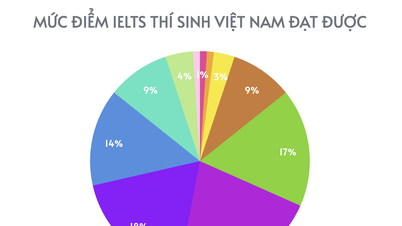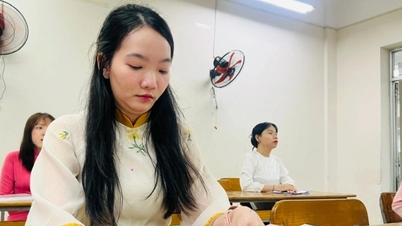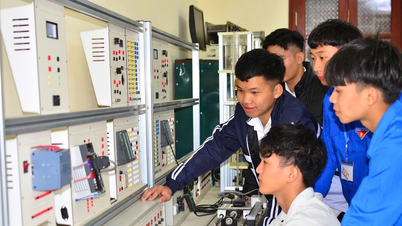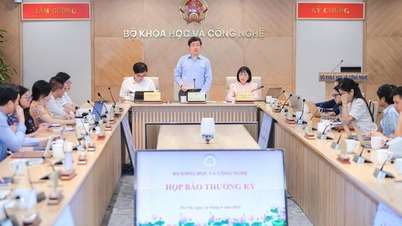According to statistics from the National Economics University, this year, of the 8,858 full-time students enrolled, about 80% have met the English output standards. The current output standards of this school are 6.5 IELTS for advanced programs, 6.0 for high-quality, application-oriented programs, and 5.5 for standard full-time programs.
Dr. Le Anh Duc, Head of Training Management Department, said that this is the year with the highest rate of new students meeting English output standards ever at the National Economics University.
“If 5 years ago, each course only had about 200-300 students with international English certificates, now this number has reached nearly 7,000. Notably, 96% of these students have IELTS 6.0 or higher and more than 80% have 6.5 or higher,” said Mr. Duc.
With such a foreign language foundation, according to Mr. Duc, students will have a great advantage in accessing international resources, be ready to study in a global environment and have an advantage in studying abroad or participating in the international labor market after graduation.
“That also shows that the new generation of students is very talented, has enough core competencies and is ready to enter a new era where they will become global citizens,” he emphasized.

However, the fact that students are increasingly good at English also poses a big challenge for the teaching staff. Mr. Duc admitted that this is a "pressure" for the school's teachers, although the teaching staff are all well-trained, including many teachers who have studied at prestigious foreign universities.
“We have prepared for this, as shown in the Project to develop English as a second language,” he said. This project has provided a clear roadmap for improving the actual foreign language skills of both lecturers and staff in all departments. The school’s goal is to make English the language used in training, scientific research and even in daily professional activities, in addition to Vietnamese.
Mr. Duc also emphasized that foreign languages are just a means and cannot replace specialized knowledge and other core competencies. Therefore, when entering school, even if students have advantages in English, they should not be subjective, because having a good foundation in English does not mean being proficient in specialized English.
“Teachers may not be the best according to international English standards, but they will be experts in the field and have the ability to combine expertise with English to teach and convey to students,” said Mr. Duc.
Sharing with new students at the opening ceremony of the new school year, Associate Professor Dr. Bui Huy Nhuong, Director of the National Economics University, advised that although 80% of students have met the foreign language output standards, they still need to continue to improve their English, in addition to solid professional knowledge, digital skills, and communication skills to become global citizens.
In addition, according to him, students also need to study proactively and creatively, accumulate both basic and modern knowledge; train to become people with independent thinking, capable of analyzing, creating and solving practical social problems.

Source: https://vietnamnet.vn/gan-7000-tan-sinh-vien-mot-truong-dat-chuan-dau-ra-tieng-anh-ielts-cao-chot-vot-2442197.html





![[Photo] Prime Minister Pham Minh Chinh attends the groundbreaking ceremony of two key projects in Hai Phong city](https://vphoto.vietnam.vn/thumb/1200x675/vietnam/resource/IMAGE/2025/9/27/6adba56d5d94403093a074ac6496ec9d)





































































































Comment (0)